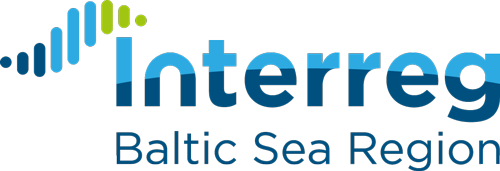About the Project
The common challenge of all partner countries are the EU’s ambitious targets for the reduction of transport sector emissions and the aim to phase out conventionally fuelled vehicles in urban transport by 2050. E-vehicles produce significantly less CO2 and noise emissions and are therefore the ideal means of transport in an urban context given the relatively short distances.
While national promotion strategies for e-mobility have primarily focused on individual car use, other potential applications have received less attention. These include:
- Electric delivery vans and trucks that could greatly reduce the CO2 and noise emissions of the urban logistics sector
- Urban companies and public authorities operating large fleets of cars, e.g. for maintenance workers, that could be replaced by e-vehicles
- E-bikes (rented/owned) that can be used by commuters travel the last mile to their workplace or for business trips in inner cities
- E-buses to make public transport even more environmentally friendly if routes, charging infrastructure and operational routines are planned and designed effectively
- E-scooters to increase the accessibility of public places such as cemeteries and hospitals for people with impaired mobility, thereby strengthening social inclusion
- Electric ferries and water taxis to complement public transport systems in the many coastal cities of the Baltic Sea Region.
Experience with practical implementation of these multiple applications of e-mobility solutions in BSR cities is still limited. The project partners will first explore the technical state-of-the-art, status quo and potentials of e-mobility in the partner regions. This preparatory phase will be followed by demonstration actions in the above named themes in the involved cities, each of which will result in transferable concepts or recommendations.
By building mutual learning partnerships and organising webinar, study vists and capacity building seminars the consortium will ensure constant exchange of experience and know-how between the involved cities and with experts from cities beyond the partnership. The exchange will feed into theme-specific recommendations, an online learning module for urban transport stakeholders and a “Baltic Sea Region Roadmap for Urban E-Mobility”.
Duration:
October 2017 – September 2020
Funding Source:
INTERREG Baltic Sea Region Programme 2014-2020
Specific Objective:
3.5 - Environmentally friendly urban mobility
Total Budget:
3,8 mio. EUR
Partnership:
15 partners + 28 associated organisations
Lead Partner:
Hamburg University of Applied Sciences, Germany
Activities and Outputs
- Analysis and overview of e-mobility in the Baltic Sea Region
- Demonstration of activities, feasibility studies and stakeholder analyses
- Development of specific recommendations based upon findings and results of piloting activities
- Creation of BSR roadmap on e-mobility, compiling best practices and specific results
- Dissemination of results and capacity-building programmes
Capacity-Building
Various theme-specific capacity building initiatives will foster knowledge building and exchange, aiming to enhance the target group’s capacity for informed decision-making. These seminars and webinars for public authorities, companies, planners, transport providers as well as other interested persons will take place during the whole project period. For further information please consult: Events


